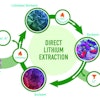A coalition of consumer safety groups asked federal officials to ban the use of flame retardant chemicals in consumer products.
The groups, including the American Academy of Pediatrics, the International Association of Fire Fighters, the Learning Disabilities Association of America, Consumers Union and the Consumer Federation of America, argued the prevalence of organohalogens in many common products poses long-term health risks that outweigh their fire safety properties.
Research linked organohalogens to cancer, reproductive problems, mental health issues and obesity; the groups hope to ban their use in children’s products, furniture, mattresses and electronics casing.
“Children’s natural behaviors ... make them uniquely vulnerable to flame retardants and the harmful fumes and dust they emit,” said Sandra Hassink of the American Academy of Pediatrics.
Firefighters groups, meanwhile, argued their members face uniquely dangerous levels of those chemicals when entering burning residences or businesses.
“When toxic flame retardants burn — and they do burn — it creates a serious health risk for fire fighters,” said Harold Schaitberger, general president of the International Association of Fire.
The groups' petition comes amid another fight on Capitol Hill over the Toxic Substances Control Act, the last remnant of 1970s-era environmental regulation that hasn't seen a subsequent legislative update.
A reform measure offered by Sens. David Vitter, R-Louisiana, and Tom Udall, D-New Mexico, received the support of chemical industry groups but ran into problems among some environmental advocates.
Groups Seek Ban On Flame Retardant Chemicals
“When toxic flame retardants burn — and they do burn — it creates a serious health risk for fire fighters,” said Harold Schaitberger, general president of the International Association of Fire.
Apr 7, 2015
Latest in Energy
2023 Was a Record Year for Wind Installations
April 16, 2024
Expanding Pipeline System Faces Critical Safety Concerns
April 15, 2024






















